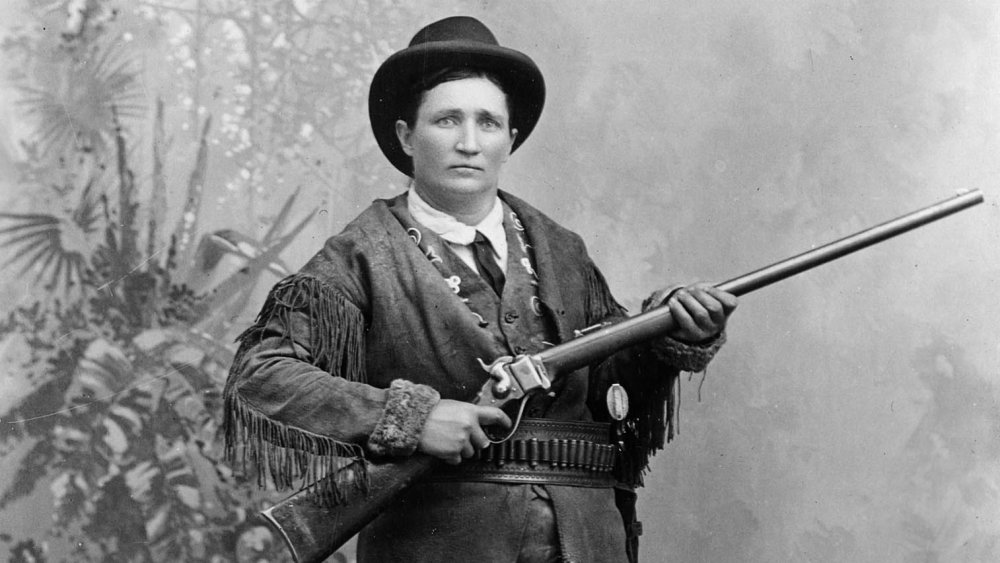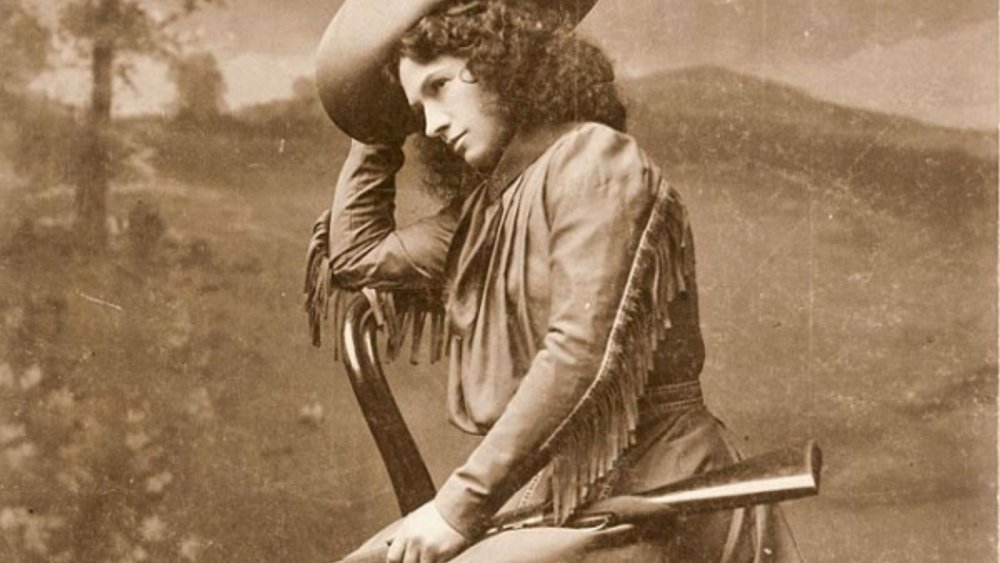What Life Was Like For Women In The Wild West
History class might have taught you that women in the United States won the right to vote in 1920 after a hard-fought struggle that culminated in the ratification of the 19th Amendment. Suffragettes went to prison for picketing, conducted hunger strikes, and endured the indignity of force-feedings by jailers. But decades earlier, many women who lived west of the Mississippi River sated their hunger for suffrage. As the National Park Service describes, suffragettes went wild in the West, mobilizing and lobbying to great effect. In 1869, the Wyoming Territory gave women the right to vote. The Utah Territory followed suit in 1870.
The Washington Territory narrowly failed to pass suffrage legislation in 1854, falling short by just one vote. In 1883, it finally succeeded, but Washington ironically rescinded women's voting rights after officially joining the Land of the Free in 1887. Colorado, by contrast, became the first full-fledged state in the West to embrace women's suffrage in 1893. Legislative showdowns didn't always go down in women's favor, but the quest for equality engendered far greater progress out West than the rest of the country experienced. Female teachers received equal pay and women had an easier time acquiring divorces, via Time Magazine. And those were just some of the ways in which the Wild West played by different rules where women were concerned.
A time of myth and misery
The women of the Wild West might have pioneered suffrage laws, but they could also be lawless. In fact, they could be a lot of things.
PBS describes the rise of celebrated gun-getter and sharpshooter Annie Oakley. The hard-drinking and even harder riding "Calamity Jane" bucked gender norms, working as a scout, clashing with Native Americans, and even posing as a man during her daring exploits. "Bandit Queen" Pearl Hart became an iconic female outlaw, and an inspiring voice for women. She knocked out men and took their money, robbed a stagecoach with her male partner, and escaped from prison. When she finally stood trial, Hart stood her ground in epic fashion, declaring, "I shall not consent to be tried under a law in which my sex had no voice in making." The belle of the outlaw ball, Belle Starr, orchestrated robberies, harbored outlaws, frequented saloons, and allegedly "[galloped] down streets with guns blazing."
These tall tales of old-timey badassery are often a mix of fiction and fact, though, and fail to tell the whole story. Hollywood has historically romanticized saloon girls, who in reality led incredibly unromantic lives marred by violence, addiction, disease, and sexual assault. Some women's stories are omitted altogether. In a Time Magazine article, Zócalo Public Square points out that women lived out West long before U.S. settlers arrived: Spanish, Mexican, and Native American women all had a longstanding presence. Their experiences and opportunities were as diverse as their backgrounds.

